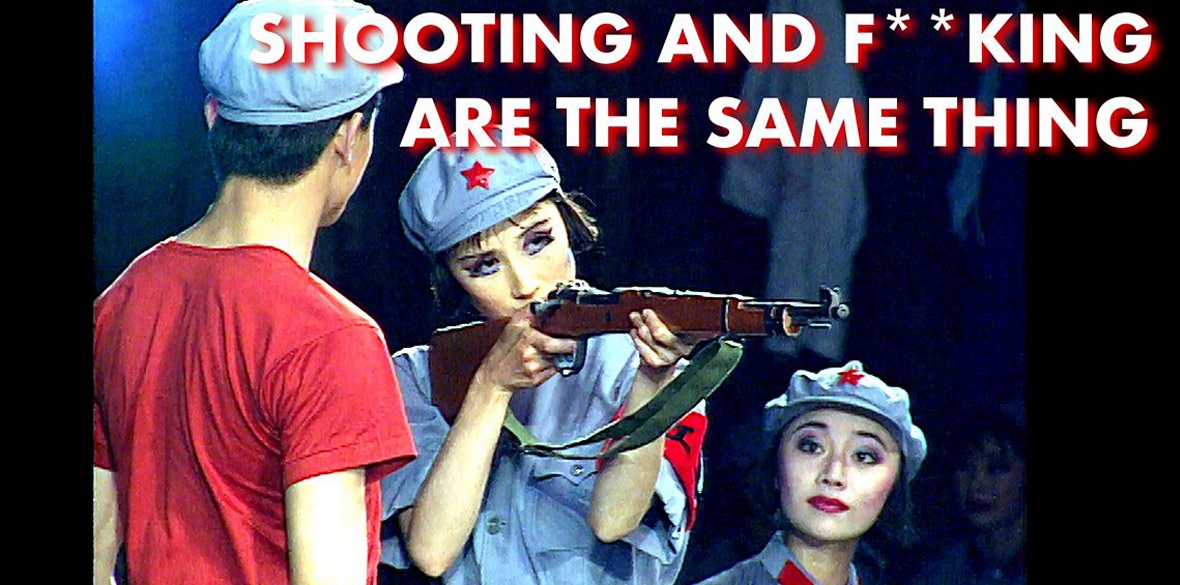This is the last article you can read this month
You can read more article this month
You can read more articles this month
Sorry your limit is up for this month
Reset on:
Please help support the Morning Star by subscribing here
AMUSING, disturbing and immersive, Adam Curtis’s eight-hour documentary epic Can’t Get you out of my Head, currently on BBC iPlayer, is a tour de force.
A magpie in the archive, stealing what he can to feather his nest, Curtis tops and tails this extravagant survey of the last 100 years with a quotation from US anthropologist David Graeber, who died last September.
He was an anarchist and founder of the Occupy movement and this massive documentary essay plays out as a reconstruction of Graeber’s provocative rhetoric: that technology and politics have abandoned “alternative futures” for “labour discipline and social control.”
It goes like this: revolutionary hope failed with the revolutionary movements of China and the USSR, as well as those of 1968, the Red Army Faction and Islamic State. But democracy has failed as well. Democracies find their erratic choices over-ridden by “non-majoritarian institutions” like the EU and by global corporations.
Populism is a reaction to this powerlessness and is composed of false myths that, at their core, resurrect racism. It amounts to little more than a political freak show unable to challenge the new bureaucracy of untouchable and unaccountable power and the new techno imperialism of money.
And in cahoots with this status quo is the “society of the spectacle,” in which citizens are vacant voyeurs and consumers whose anxieties are controlled by TV, the internet and drugs — valium, oxycontin and crack.
Curtis combs the video archives for material to prove this gloomy thesis. He can’t get Graeber out of his head and it’s a familiar dystopia — Aldous Huxley sketched it out in Brave New World — and Graeber used it as a provocative accompaniment to committed activism.
He was a vocal supporter of Corbyn and, as a Jew himself, spoke up against the way Corbyn was smeared with anti-semitism. Graeber believed in change and the need to campaign for a socialist majority.
But Curtis doesn’t believe in change and, by cherry-picking the politics out of Graeber’s ideas, Curtis does him a grave disservice. When you strip out the campaigning, you are left with the bare bones of paranoia and no sense of what to do about it. Deprived of political agency, you are tripping on half-truths.
Curtis is covertly pro-Brexit and, while he tries to suggest a positive future, the logic condemns Brexit as a Pyrrhic victory. By his own admission, in practising cultural anthropology without a political compass, he is “arguing something very close to a neoconservative position.” And he has become fantastically good at it.
The neocon aesthetic thrives on so-called individualism, failed revolutions, dastardly science and mind-control — and on pranksters, parallel narratives and the occasional oblique view of a well-known person or event.
And because it doesn’t look outward like the activist films of Chris Marker or Guy Debord, it looks inward and becomes intoxicated by its own reflection. It is profoundly narcissistic. If the “you” of the film's title begins as Graeber, it ends as Curtis himself.
He unearths many astonishing encounters and the films bring you up close and personal with Robin Douglas-Hume — articulate but suicidal after his divorce — Michael de Freitas — Rachman’s sidekick and a would-be Malcolm X — and Julia Grant, the first transgender person to be documented on TV, to name just a few.
But these are trumped by a story told from the point of view of a jihadist who joins the Mujahideen in Afganistan at age 20. Cue amazing footage of a jihadist entering a compound — turbans, scowls and four-wheel drives — to the accompaniment of Chris De Burgh’s Lady in Red.
This is Curtis in camouflage. It is daring film-making but it’s also total fabrication and a projection of Curtis’s own fantasies. After a head wound, the jihadist keeps a diary of fragmented impressions and, after brutal US torture, mixes up movie plots with memories. Just like Curtis, in other words.
By closing the film with the image of a man in detention, who may or may not be Guantanamo detainee Abu Zubaydah, Curtis disguises the narcissism of the neocon aesthetic with an image that seems to expose political injustice but refuses to do anything about it.








